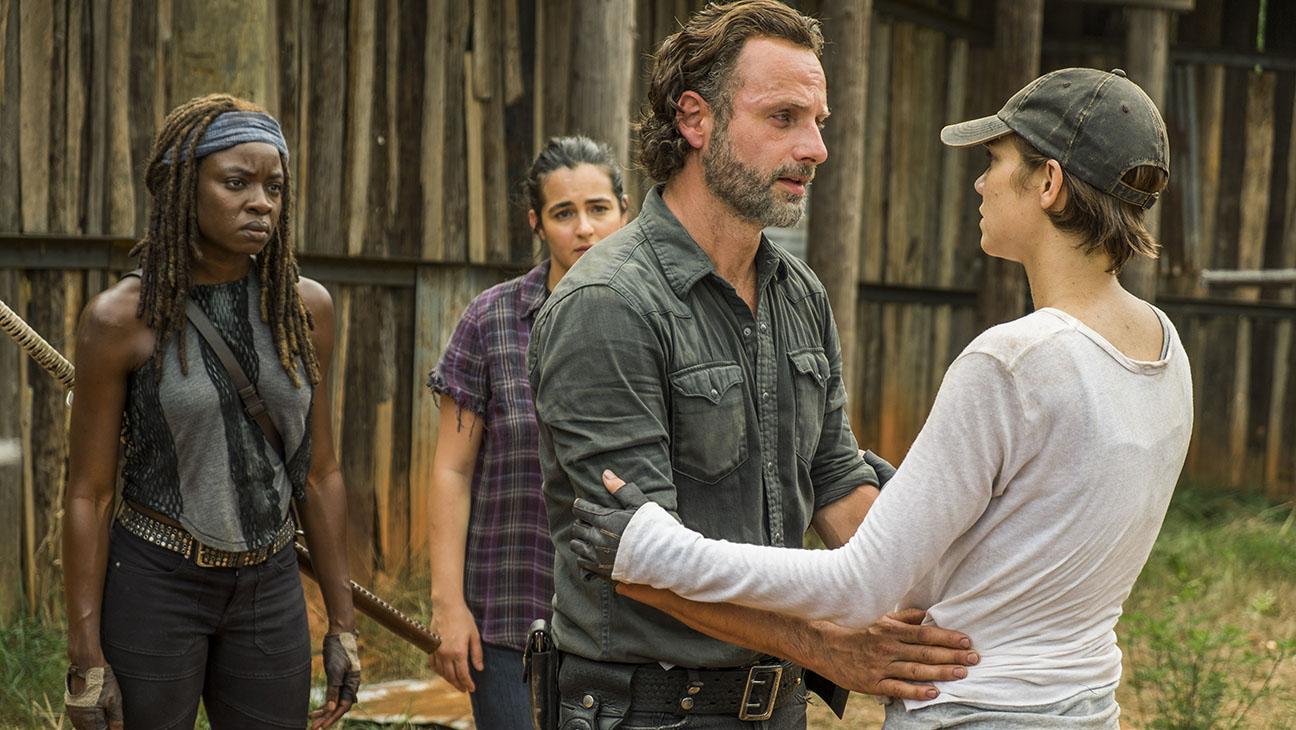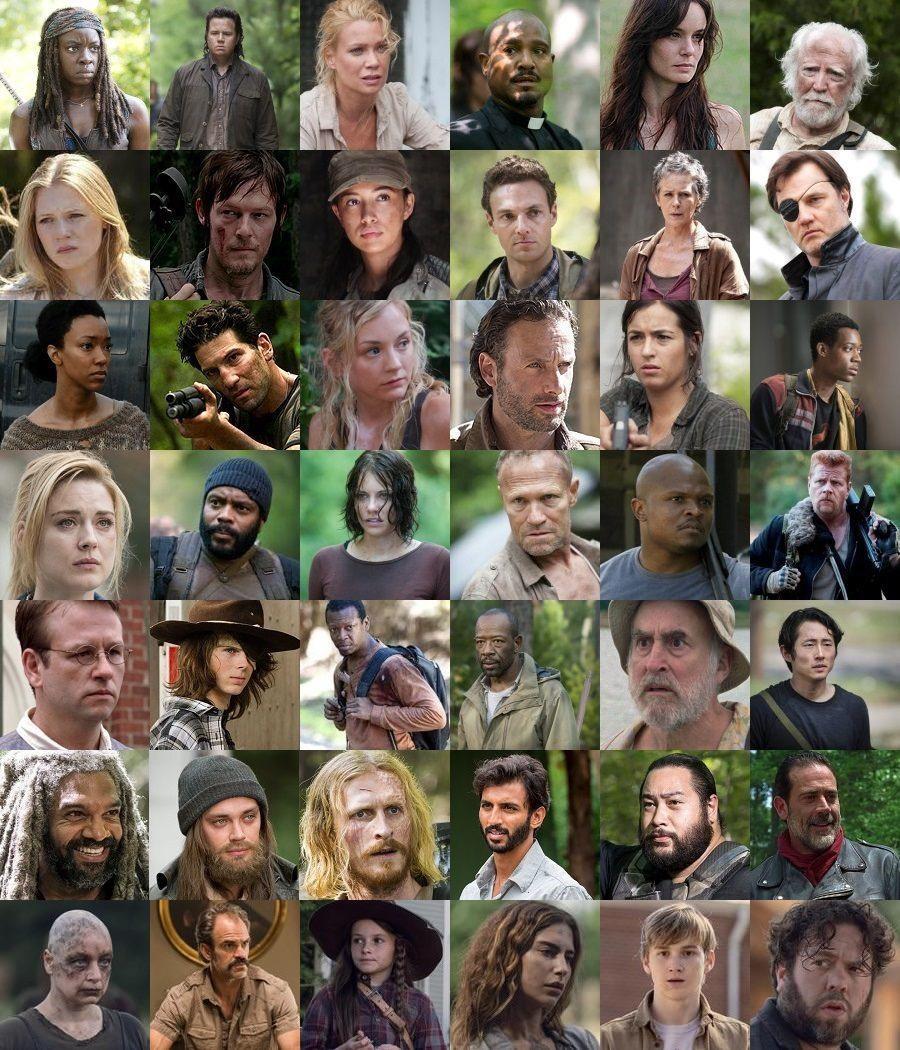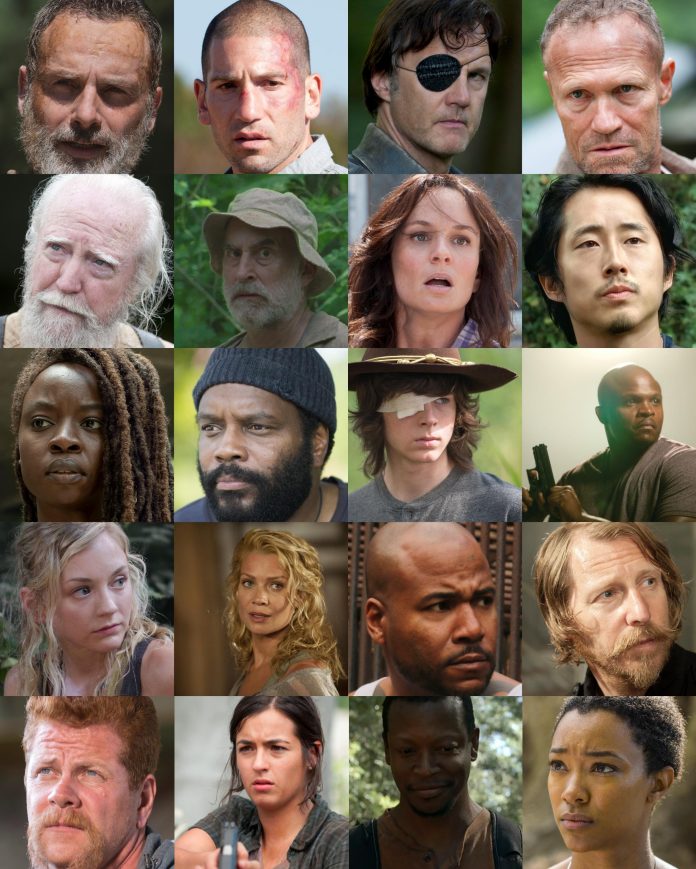In the shadowy corridors of post-apocalyptic America, where the dead walk and the living grapple with the raw essence of survival, “The Walking Dead” has emerged as a cultural phenomenon, captivating audiences with its haunting portrayal of humanity at its most vulnerable. At the heart of this gripping narrative lies an ensemble of characters whose struggles, triumphs, and transformations offer profound insights into the human condition. These characters, from the steadfast leaders to the unlikely heroes, are more than mere survivors; they are the embodiment of resilience, morality, and the relentless quest for hope in a world stripped of it. In this exploration of “,” we delve into the complex tapestry of personalities that have not only defined the series but have also left an indelible mark on the hearts and minds of its viewers. Through their eyes, we witness the unraveling of society and the rebirth of humanity, making their stories as timeless as they are unforgettable. Join us as we journey through the wasteland to uncover the characters that truly matter and the reasons they continue to resonate in a world that teeters on the brink of oblivion.
Iconic Leaders and Their Unyielding Influence
In the gritty world of The Walking Dead, leadership is not just about wielding authority but about embodying resilience and hope amidst chaos. These iconic figures stand out not merely because of their survival skills, but due to their profound influence on the communities they nurture and protect. Rick Grimes, the steadfast former sheriff, represents the moral compass of the group. His evolution from a law-abiding officer to a hardened survivor mirrors the complexities of maintaining humanity in a lawless world.
- Maggie Greene: From a farmer’s daughter to a formidable leader, Maggie exemplifies the power of adaptability and strength. Her journey underscores the importance of legacy and community.
- Michonne: Wielding her katana with precision, Michonne’s influence extends beyond her combat prowess. Her strategic mind and emotional intelligence make her a cornerstone of survival.
- Negan: While controversial, Negan’s charismatic leadership and unyielding will challenge the boundaries of moral ambiguity, prompting us to question what true leadership entails in dire circumstances.
These characters, through their unyielding influence, not only navigate the challenges of a post-apocalyptic world but also redefine what it means to lead with courage and conviction.

Complex Survivors Shaping Moral Landscapes
In a world overrun by the undead, it’s the survivors who truly shape the moral landscapes, presenting viewers with a tapestry of complex characters that challenge our understanding of humanity. The beauty of “The Walking Dead” lies in its ability to weave intricate moral dilemmas through its characters, each one a beacon of resilience and ambiguity. These individuals are not just fighting to survive but are also grappling with the shades of morality in a lawless world.
- Rick Grimes: The reluctant leader whose journey from sheriff to survivor illuminates the thin line between justice and vengeance.
- Michonne: A warrior with a katana, her evolution from a lone wolf to a protective mother figure underscores the theme of redemption.
- Carol Peletier: From domestic abuse victim to a fierce protector, her transformation questions the nature of strength and compassion.
- Daryl Dixon: A drifter turned loyal companion, his character explores themes of loyalty and identity beyond the apocalypse.
- Negan: Once a villain, his complex arc challenges the notion of forgiveness and the possibility of change.
These characters, through their flawed humanity, reflect our own struggles and triumphs, making them pivotal in defining what it means to be human when society’s norms collapse. Their stories compel us to ponder how far we would go to protect those we love, and what we might become when the world as we know it falls apart.
Enduring Relationships Forged in Chaos
In the tumultuous world of The Walking Dead, the bonds that form between characters are often as unpredictable as the world they inhabit. These relationships, forged in the crucible of chaos, highlight the enduring nature of human connection amidst relentless adversity. Rick Grimes and Daryl Dixon serve as the quintessential example of this phenomenon. Their dynamic is rooted in mutual respect and a shared understanding of survival, evolving from wary allies to steadfast brothers. This evolution underscores the narrative’s focus on the transformative power of loyalty and trust.
- Maggie Greene and Glenn Rhee: Their love story is a beacon of hope, illustrating that even in a world dominated by despair, love can thrive and provide strength.
- Carol Peletier and Ezekiel: This partnership exemplifies the resilience of the human spirit. Their relationship is a testament to the healing power of empathy and shared purpose.
- Michonne and Judith Grimes: Their bond transcends traditional family ties, showcasing the importance of chosen family in a fractured world.
These relationships not only drive the plot forward but also offer viewers a profound exploration of what it means to be human when humanity itself is under siege. In the chaos of the apocalypse, these connections remind us that it is our bonds with others that define us, offering a glimmer of hope and humanity in the darkest of times.

Symbolic Arcs and Their Narrative Impact
The Walking Dead, renowned for its gritty storytelling and complex characters, is rich with symbolic arcs that enhance the narrative depth and emotional resonance of the series. These arcs not only drive character development but also underscore the overarching themes of survival, humanity, and moral ambiguity. Characters like Rick Grimes, Carol Peletier, and Daryl Dixon are particularly noteworthy for their transformative journeys, each laden with symbolic significance that captivates and challenges the audience.
- Rick Grimes: His evolution from a law-abiding sheriff to a hardened leader reflects the loss of innocence and the constant struggle between maintaining humanity and succumbing to brutality.
- Carol Peletier: Once a victim of domestic abuse, her transformation into a formidable survivor symbolizes empowerment and the ability to redefine oneself amidst chaos.
- Daryl Dixon: Initially an outsider, his journey represents the theme of belonging and the power of chosen family, highlighting how bonds are forged through shared adversity.
These characters’ arcs are more than just personal stories; they serve as mirrors reflecting the show’s broader existential questions. By weaving symbolic elements into their narratives, The Walking Dead compels viewers to ponder the essence of humanity in a world stripped of its moral compass.



